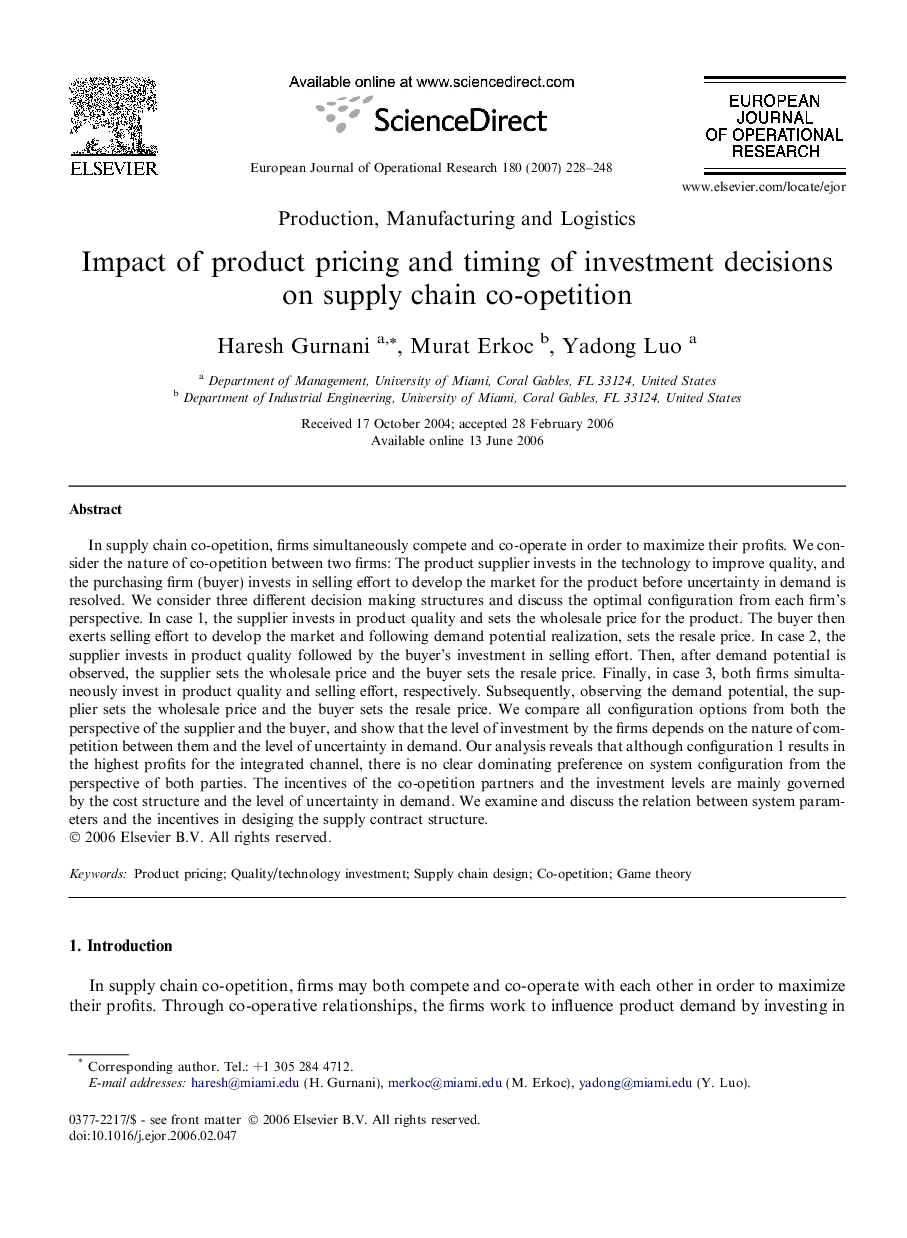| Article ID | Journal | Published Year | Pages | File Type |
|---|---|---|---|---|
| 477795 | European Journal of Operational Research | 2007 | 21 Pages |
In supply chain co-opetition, firms simultaneously compete and co-operate in order to maximize their profits. We consider the nature of co-opetition between two firms: The product supplier invests in the technology to improve quality, and the purchasing firm (buyer) invests in selling effort to develop the market for the product before uncertainty in demand is resolved. We consider three different decision making structures and discuss the optimal configuration from each firm’s perspective. In case 1, the supplier invests in product quality and sets the wholesale price for the product. The buyer then exerts selling effort to develop the market and following demand potential realization, sets the resale price. In case 2, the supplier invests in product quality followed by the buyer’s investment in selling effort. Then, after demand potential is observed, the supplier sets the wholesale price and the buyer sets the resale price. Finally, in case 3, both firms simultaneously invest in product quality and selling effort, respectively. Subsequently, observing the demand potential, the supplier sets the wholesale price and the buyer sets the resale price. We compare all configuration options from both the perspective of the supplier and the buyer, and show that the level of investment by the firms depends on the nature of competition between them and the level of uncertainty in demand. Our analysis reveals that although configuration 1 results in the highest profits for the integrated channel, there is no clear dominating preference on system configuration from the perspective of both parties. The incentives of the co-opetition partners and the investment levels are mainly governed by the cost structure and the level of uncertainty in demand. We examine and discuss the relation between system parameters and the incentives in desiging the supply contract structure.
